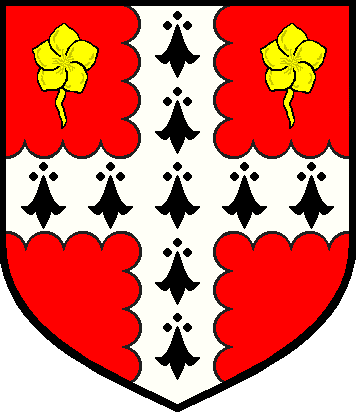 |
Mayfields of South Carolina |
 |
|
|
|
Calendar Dating Conventions Used at this Web Site By Phil Norfleet
All calendar dates used at this web site, prior to 01 January 1752, are given pursuant to the Julian Calendar, while dates subsequent to 01 January 1752 are as per the Gregorian Calendar. Dates prior to 1752 falling in the period 01 January to 25 March, which lie at the end of the Julian year but are at the beginning of the Gregorian year, are indicated herein as double year dates. For example, the Julian date "18 February 1662" is represented as "18 February 1662/1663" to alert the reader that the actual year per our modern Gregorian Calendar is 1663. Julian Calendar In most early societies, the responsibility for maintenance of the calendar lay with the religious authorities. The so-called "Julian Calendar" was established by Julius Caesar, acting in his capacity as "Pontifix Maximus" (high priest of the Roman state) in 45 B. C. and was corrected by Augustus Caesar (also functioning as "Pontifix Maximus") in A. D. 4. [See E. J. Bickerman, Chronology of the Ancient World (1980), Pages 10 and 47.] From that time until A. D. 1582, this calendar was in general use throughout the Roman Empire and subsequently all of Christian Europe. It was customary to begin the Julian year on 25 March instead of our modern practice of commencing the year on 01 January. Also, the Julian Calendar is slightly divergent from the true solar year, so that by 1582 the discrepancy amounted to ten (10) days. Gregorian Calendar Accordingly, in 1582, Pope Gregory XIII, promulgated, pursuant to his authority as "Pontifix Maximus" (which title had been taken over by the papacy from the defunct Roman Emperors centuries before), a reformed and much more accurate calendar, subsequently called the "Gregorian Calendar." In the Gregorian calendar, the year commences on 01 January. Unfortunately, this reform came at the time of the European religious wars between the Protestants and Catholics. The Protestant countries, including England, refused to adopt the new calendar until centuries later. In England the change to the Gregorian Calendar was finally effected by "Chesterfield's Act" of March 1751. This act decreed that 01 January 1752 should be the first day of 1752 and that 02 September 1752 should be followed by 14 September 1752, thus bringing the English Calendar into line with the Gregorian Calendar in use on the Continent. [See Terrick V. H. FitzHugh, The Dictionary of Genealogy (1985), pages 57-59.]
|